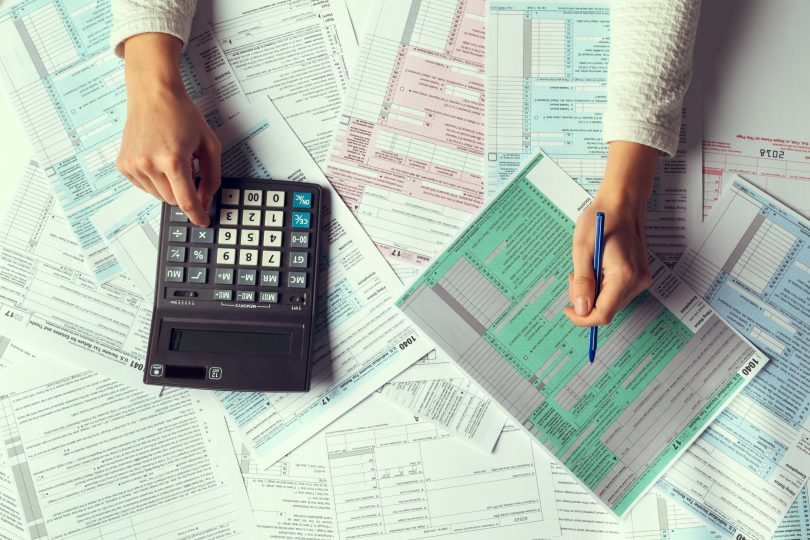Contents
Most of us agree that taxes are a necessary part of any functioning society. You might not like having to pay them, but you will definitely benefit from the things that they pay for; quality roads, public education, universal health care, police and fire services – the list of taxpayer-funded services is extensive and important.
However, just because paying taxes is important, it doesn’t mean that you need to pay any more than you should. Deductions are a perfectly legitimate way of reducing your tax burden. This is especially true if you own a business.
Knowing what you can claim as a deduction could be the difference between a refund and a tax bill. That being said, the ATO isn’t going to make it easy by getting in touch with you and spelling out what you can and can’t claim. It’s up to you to educate yourself or select an appropriate professional tax service such as an accountant that can provide you with the information you need.
Before you choose to fill out your next tax return, make sure you read the rest of this article to learn about these five claimable deductions that you may not know about. Not only will they surprise you, but they could save your business a lot of money as well!
Research & Development
The Federal government wants Australian businesses to be innovative and remain competitive on the global stage. That’s why they’ve put in place a range of R&D tax incentives.
This means that businesses are able to claim a portion of their R&D expenses as a deduction. Even better than that, there are also services that can provide your business with an R&D tax refund loan advance in Australia. This means that you don’t have to wait until the end of the financial year to start investing in your R&D program.
1) Work-Related Car Expenses
Unfortunately, you aren’t able to claim for driving to and from work. However, you are able to claim fuel and maintenance costs when you use your car for work-related reasons.
There are two methods of calculating this deduction – using a 12-week logbook (which generates numbers you can use for 5 years) or the cents-per-kilometre method.
The ATO defines work-related kilometres as distance travelled in your car while you are earning your income.
To claim this deduction you must be the owner of the car (company cars don’t qualify) and your travel must be part of your working day. This can include trips to the bank or post office, moving from one job site to another or visiting different offices or branches of your business.
It doesn’t include driving between work and home unless you’re carrying heavy tools or transporting heavy equipment that you require to do your job.
2) Mobile Phone & Internet Costs
Given the prevalence of phone and internet usage in modern business life, this can be a very valuable deduction. If you use your personal phone and internet connection to perform work-related tasks – like calling and emailing clients and staff – then you can claim these costs as deductions on your tax return.
For example, if you estimate that 50% of your phone and internet usage is work-related, you can claim 50% of your phone and internet bill on your tax return. If your monthly combined phone & internet bills were $160, then the calculation would look like this:
- 50% of $160 = $80 per month
- $80 x 12 = $690 in deductions per year
3) Home Office Expenses
As the world becomes more and more connected via the internet, it’s now easier than ever to work from home. This includes checking and responding to your work emails in the evening or on the weekend.
It’s also very common for people to have a “side hustle” business that they operate from home outside of their regular working home. If this is you, then the ATO allows you to claim part of your office home expenses.
This can include software, equipment and furniture. If you work entirely from home (either as an employee or because you’re self-employed) then you can also typically claim the “occupancy cost” of your home office space. This means that you’ll also be able to claim a percentage of your rent/mortgage and electricity costs.
4) Self-Education Expenses
Want to learn and become better at your job? Then the good news is that you’re able to claim self-education expenses if there’s a connection between the course and your role in your business.
Possible sources of deductions include expenditure on things including:
- Computer expenses
- Stationary
- Textbooks, trade and professional journals
- Student services and amenities fees
- Accommodation and meals (when participating in courses that require you to be away from home for one or more night)
- Travel expenses
- Running expenses if you have a room at home set aside for self-education purposes (such as the cost of cooling, heating and lighting that room while you’re studying in it).
5) The Cost Of Managing Your Tax Affairs
Using an accountant or another tax agent can be a great way of ensuring that you’re able to claim as many deductions as possible. Not only does it make the whole process a lot easier, but it can help you greatly reduce your tax burden.
In addition to this, you’re actually able to deduct the fees you pay from the following year’s tax return.
Remember To Research Or Get Professional Assistance
As we mentioned before, deductions are a completely legitimate way of reducing your tax burden. There’s nothing suspect or underhanded about it – as long as your deductions are in line with ATO regulations.
If you’re going to do your tax return yourself, it pays to thoroughly research what deductions you have available to you. If you don’t have the time or expertise to do this, seeing an accountant or another tax agent can be a great way of making sure that you’re making the most of your deductions.







